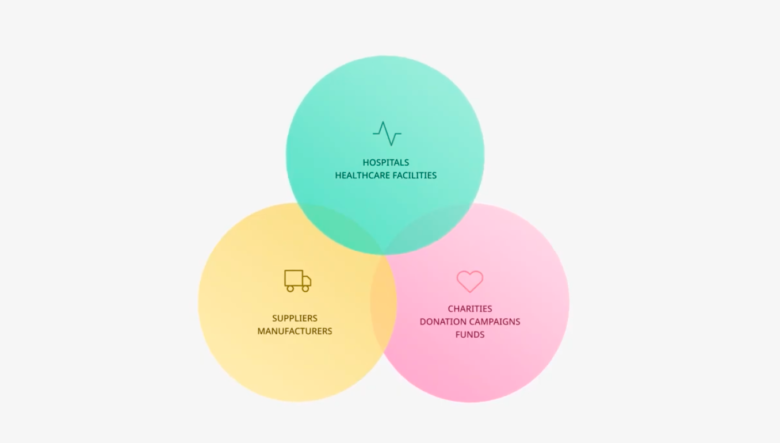Bulgarian Aidbind That Helps Hospitals, Manufacturers Of Medical Products And Charities Connect Is Among The Winners Of #EUvsVirus

Aidbind, a project that was started during the Bulgarian Hack The Crisis hackathon in March and evolved into an international endeavor targeted at closing the information gap between hospitals, supply and funding of medical products, is among the six big winners of the pan European EUvsVirus challenge. The initiative aimed at tackling coronavirus-related challenges gathered over 20K participants who submitted close to 2.2K ideas, and a total of €100K has been pledged by partners to date.
“This was just the beginning. With the support of the European Innovation Council and all of the partners involved in the Hackathon, I look forward to the transformation of these fantastic ideas into reality for the betterment of all,” commented Maria Gabriel, the EU Commissioner for Innovation, Research, Culture, Education and Youth.
Aidbind – on a mission to put information pieces together
Started only a month ago, Aidbind is on a mission to improve the global distribution of medical supplies and equipment by providing essential data for everyone looking to donate to medical institutions around the world. The team is building a platform that provides aggregate, up-to-date data on the three main parts of the healthcare donations chain – hospitals, suppliers and manufacturers, and funding vehicles such as charities, donors and funds.
But why is this needed? Healthcare providers need medical equipment urgently and suffer from the lack of supplies. Manufacturers and existing suppliers are overwhelmed with the demand and a number of new manufacturers are repurposing their production lines or starting from scratch to join the market. At the same time, fundraisers struggle to procure medical equipment and match them to institutions that need funding and support the most.
The team of nine, distributed between Bulgaria, Switzerland, Malta, Germany and Sweden believes now is the right time to put effort into building such a platform as the covid-19 pandemic has made the systematics data accessibility issue more visible, and different stakeholders (including governments) more receptive towards such solutions.
In the past month, the team has managed to develop its prototype, collect a lot of research and establish the first version of a database. Currently, when it comes to up-to-date data in the platform, Aidbind mostly relies on its team for the collection, but it’s also working on a form of submission option.
The project was among the winners of the Bulgarian hackathon against the crisis, and was now recognized on European level, receiving a cash award of €3K and non-financial support for the further development of Aidbind. At the end of May, the team will participate in a special initiative aimed at connecting the winning teams with international investors.
The other five big winners
Aidbind is the big winner in the Social and political cohesion category. After careful selection among 117 finalists, the jury selected a total of six winners in the different domains. Here’s what other solutions were held for most viable:
Health and Life category: Team Discovery (Hungary) for their highly scalable patient monitoring system that minimizes the need for physical contact between nurses and patients.
Business Continuity category: Ministry for safe retail (Hungary) for their remote queuing solution to ensure social distancing in retail industry.
Remote working and education category: The Village – Where The World Is Your Classroom (Switzerland, Ukraine, United States, India) for their online village platform that you can share with friends, family, teachers and peers for experiential virtual learning.
Digital finance category: Bankera Business Care (Lithuania) for their solution to provide SMEs with short-term financing to cover their liquidity needs during times of crisis.
‘Other’ category: Sewers4COVID (Greece, Netherlands, Spain, United Kingdom) for their sewer surveillance platform for early virus detection to help decision-makers direct resources where they are most needed.
This may also interest you:




























